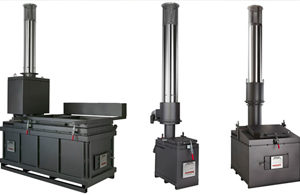Our incinerators are designed for hospitals, clinics and other healthcare facilities, towns and cities, district, municipal & metropolitan assemblies, schools, colleges, polytechnics, universities, institutions, manufacturing companies, etc. We design to suit the specific purposes/uses and conditions of our clients.
In our rapidly urbanizing global society, solid waste management is a key challenge facing most world cities. the issue of collection, management and disposal of solid waste is one of the major challenges facing our Metropolitan, Municipal and District Assemblies as well as health and educational institutions. waste disposal companies are contracted to collect all forms of waste within their catchment areas and dump them at landfill sites. landfill sites are the oldest form of waste treatment. They have been the most common methods of organized waste disposal and remain so in many places around the world.
This has left virtually no room for pragmatic solutions especially with respect to hazardous waste management. Hazardous waste includes chemical wastes, pharmaceutical waste, and pathological waste and is simply defined by EPA as:
“A solid waste, or combination of solid waste, which because of its quantity, concentration, or physical, chemical, or infectious characteristics may (a) cause, or significantly contribute to, an increase in mortality or an increase in serious irreversible, or incapacitating reversible, illness; or (b) pose a substantial present or potential hazard to human health or the environment when improperly treated, stored, transported, or disposed of, or otherwise managed.”
Incineration provides one of the preferred solutions to the hazardous waste management crisis.









